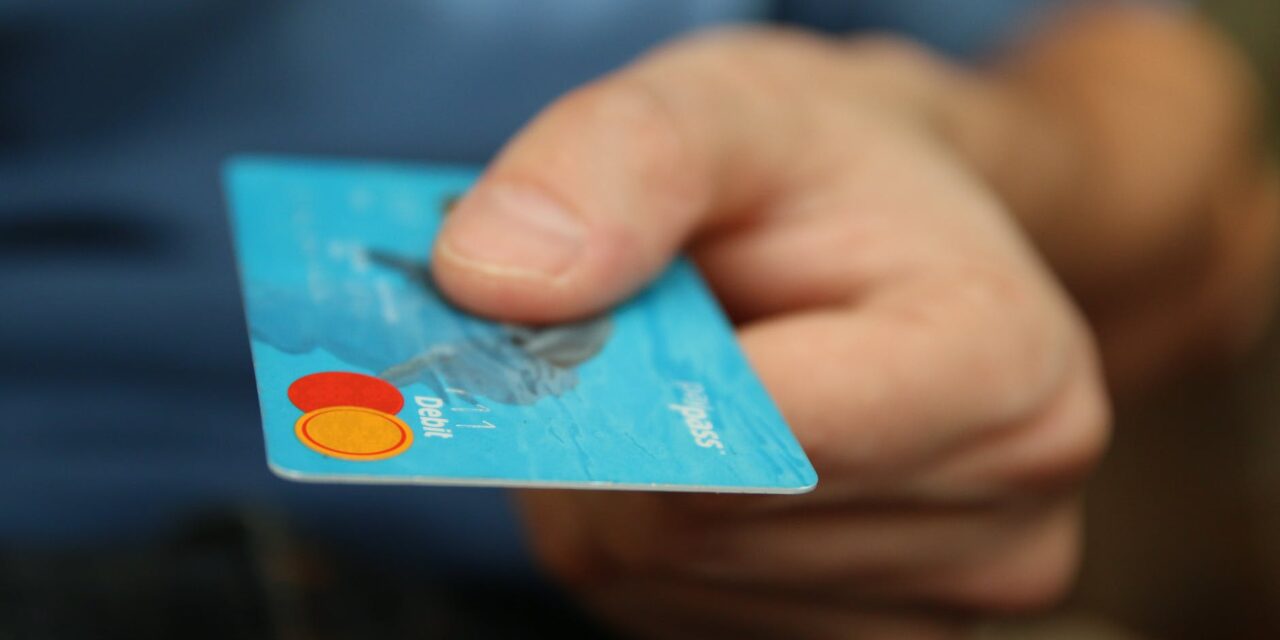In the United Arab Emirates, failing to pay off credit card debts can result in a civil case. Banks can file a civil case against individuals who fail to make payments on their credit cards. The bank can use the bounced cheque or account statements as evidence in the case.
- Understanding Credit Card Civil Cases in UAE
- The Role of Banks and Credit Card Companies
- Legal Aspects of Credit Card Default
- Security Cheques and Bounced Cheques
- Debt Collection and Legal Proceedings
- Settlement and Court Fees
- Travel Bans and Penalties
- Role of Lawyers and Legal Firms
- Insurance and Credit Shield
- Online Interactions and Notifications
- Dealing with Outstanding Amounts and Personal Loans
- Borrower’s Rights and Obligations
- Final Thoughts
- Frequently Asked Questions
If a civil case is filed against an individual, the court can order them to pay off the full amount of the debt, plus any interest and legal fees. In some cases, the court may also issue a travel ban against the individual until the debt is paid off.
It is important for individuals to make timely payments on their credit card debts to avoid facing a civil case. If they do end up in a civil case, they should seek legal advice and representation to ensure their rights are protected.
Understanding Credit Card Civil Cases in UAE
Credit card civil cases are a common legal issue in the UAE. When a credit card holder fails to make payments on time, the bank may file a civil case against them to recover the outstanding amount.
In the UAE, civil cases related to credit card debt are governed by the Federal Law No. 5 of 1985 on the Civil Transactions Law. According to this law, a bank can file a civil case against a credit card holder for non-payment of credit card dues. The bank can also seek damages from the credit card holder for any losses incurred due to non-payment of dues.
The process for filing a civil case for credit card debt in the UAE involves several steps. First, the bank must send a legal notice to the credit card holder informing them of the outstanding dues and requesting payment. If the credit card holder fails to make the payment within the specified time period, the bank can file a civil case against them.
Once the case is filed, the court will issue a summons to the credit card holder, asking them to appear in court on a specified date. The credit card holder must then attend the court hearing and present their case. If the court finds in favor of the bank, it may issue a judgment ordering the credit card holder to pay the outstanding dues along with any damages and legal fees.
It is important to note that failing to pay credit card dues can have serious consequences in the UAE. In addition to civil cases, credit card holders may also face travel bans and other legal issues. Therefore, it is important to make timely payments on credit card dues to avoid legal complications.
In conclusion, credit card civil cases are a common legal issue in the UAE. Banks can file civil cases against credit card holders for non-payment of dues, and the court may order the credit card holder to pay the outstanding amount along with damages and legal fees. It is important to make timely payments on credit card dues to avoid legal complications.
The Role of Banks and Credit Card Companies
In the UAE, banks and credit card companies play a critical role in the financial sector. They offer a wide range of financial services, including credit cards, personal loans, and mortgages, among others. When a customer applies for a credit card, the bank or credit card company will conduct a credit check to determine their creditworthiness. If the customer meets the bank’s credit criteria, they will be approved for a credit card.
Once the customer receives their credit card, they can use it to make purchases or withdraw cash from ATMs. The bank or credit card company will charge interest on any outstanding balance, and the customer is required to make minimum monthly payments. If the customer fails to make payments on time, the bank or credit card company may take legal action to recover the debt.
In the event of a civil case, the bank or credit card company will file a case against the customer in court. The bank or credit card company may also employ a third party to recover the debt. The customer will be required to pay any outstanding balance, as well as any legal fees incurred by the bank or credit card company.
It is important to note that banks and credit card companies have a responsibility to act in accordance with the law. They must follow the UAE’s civil law, which refers to debts being time-barred after 15 years, with some exceptions. Banks and credit card companies must also adhere to the UAE’s abusive debt laws, which prohibit the use of excessive force or coercion to recover debts.
In conclusion, banks and credit card companies play a crucial role in the UAE’s financial sector. They offer a range of financial services, including credit cards, and are responsible for recovering any outstanding debts. It is important for customers to understand their rights and obligations when using credit cards, and to act in accordance with the law.
Legal Aspects of Credit Card Default
Civil Case Vs Criminal Case
When a person defaults on their credit card payments, the bank may take legal action against them. The bank may file a civil case or a criminal case, depending on the severity of the default.
In a civil case, the bank will sue the defaulter for the outstanding amount. The defaulter will be required to pay the outstanding amount along with any interest and legal fees. Failure to pay the amount may result in the bank seizing the defaulter’s assets to recover the outstanding amount.
In a criminal case, the defaulter may face imprisonment and/or a fine. The defaulter will be required to pay the outstanding amount along with any interest and legal fees. Failure to pay the amount may result in the defaulter being imprisoned.
Jurisdiction and UAE Law
The jurisdiction for credit card default cases in the UAE is the civil courts. The UAE law allows banks to take legal action against defaulters. The law also allows banks to seize assets of the defaulter to recover the outstanding amount.
Event of Default and its Consequences
An event of default occurs when the defaulter fails to make the minimum payment on their credit card for a certain period. The consequences of defaulting on a credit card payment include:
- Late payment fees
- Increased interest rates
- Negative impact on credit score
- Legal action by the bank
- Seizure of assets to recover the outstanding amount
It is important for credit card holders to make their payments on time and in full to avoid defaulting on their credit card payments. If a defaulter is unable to make the payments, they should contact the bank and try to negotiate a payment plan.
In conclusion, defaulting on credit card payments can have serious legal consequences in the UAE. Banks have the right to take legal action against defaulters and seize their assets to recover the outstanding amount. It is important for credit card holders to make their payments on time and in full to avoid defaulting on their credit card payments.
Security Cheques and Bounced Cheques
In the UAE, security cheques are commonly used as a guarantee against credit card debt. A security cheque is an undated cheque signed by the credit card holder, which the bank can deposit if the cardholder fails to repay the debt. If the cheque bounces, the bank can file a civil case against the cardholder to recover the debt.
Bounced cheques are a common issue in the UAE, and they can lead to legal and financial consequences. A cheque bounces when there are insufficient funds in the account to cover the amount written on the cheque. In the UAE, bounced cheques are considered a criminal offense, and the issuer can face imprisonment and hefty fines.
However, a new law came into effect in the UAE on January 2, 2022, which decriminalized cases of bounced cheques, except those issued in bad faith. The fines for bounced cheques have been reduced, and the cases are now handled as civil matters. The fines against bounced cheques up to AED 50,000 are AED 2,000, those between AED 50,000 and AED 100,000 are fined AED 5,000, and those between AED 100,000 and AED 200,000 are fined AED 10,000.
It is important to note that security cheques are still a valid legal instrument in the UAE, and banks can use them to recover credit card debt. If a security cheque bounces, the bank can file a civil case against the cardholder to recover the debt. The cardholder can also face legal consequences, such as imprisonment and fines.
In case of insufficiency of funds, the bank can still file a civil case against the cardholder to recover the debt. The cardholder can be ordered to pay the debt, along with interest and legal fees. If the cardholder fails to pay, the court can order the seizure of assets or garnish the wages.
In conclusion, security cheques and bounced cheques are important legal instruments in the UAE, and their proper use and handling can prevent legal and financial consequences. The recent changes in the law have reduced the severity of bounced cheques, but it is still important to honor financial obligations and avoid legal disputes.
Debt Collection and Legal Proceedings
Dealing with a credit card civil case in UAE can be a daunting experience for anyone. Debt collection and legal proceedings can be complex, and it is important to understand the role of each entity involved.
Role of Debt Collection Agency
When a credit card debt is not paid, the bank or financial institution may assign the debt to a debt collection agency. The agency will then attempt to collect the debt from the debtor. Debt collection agencies have the right to contact the debtor by phone, email, or letter to request payment.
It is important to note that debt collection agencies in UAE are regulated by the Central Bank of UAE. They are required to follow certain guidelines and regulations when attempting to collect a debt. For example, they are not allowed to harass or threaten the debtor, and they must provide accurate information about the debt.
Court Case Proceedings
If the debt collection agency is unable to collect the debt, the bank or financial institution may file a civil case against the debtor. The case will be heard in a court of competent jurisdiction in UAE. The debtor will have the opportunity to defend themselves in court.
During the court case proceedings, both parties will present evidence and arguments to support their case. The court will then make a decision based on the evidence presented. If the court finds in favor of the bank or financial institution, a judgement will be issued against the debtor.
Execution of Judgement
Once a judgement has been issued against the debtor, the bank or financial institution can take steps to execute the judgement. This may include seizing assets or freezing bank accounts. It is important to note that the execution of judgement must be carried out in accordance with UAE law.
In conclusion, debt collection and legal proceedings can be complex when dealing with a credit card civil case in UAE. It is important to understand the role of each entity involved, including debt collection agencies, court case proceedings, and the execution of judgement. By seeking legal advice and understanding the process, debtors can protect their rights and navigate the process with confidence.
Settlement and Court Fees
Amicable Settlement
In the UAE, credit card civil cases can be settled amicably between the parties involved. This means that the parties can reach an agreement without going to court. An amicable settlement can be reached at any stage of the case, including before or after the court proceedings have started.
It is important to note that an amicable settlement can only be reached if both parties agree to it. If one party does not agree to the settlement, then the case will proceed to court.
Court Fees and Expenses
When a credit card civil case is filed in court, there are court fees and expenses that need to be paid. These fees and expenses vary depending on the court and the amount of the claim. In general, the court fees are calculated as a percentage of the claim amount.
The court fees and expenses can be paid by either party, but they are usually paid by the party who files the case. If the case is settled amicably, then the court fees and expenses will be lower than if the case goes to court.
It is important to keep in mind that if the case goes to court, there may be additional expenses, such as lawyer fees and expert witness fees.
Conclusion
In conclusion, credit card civil cases in the UAE can be settled amicably or through court proceedings. When a case is filed in court, there are court fees and expenses that need to be paid. It is important to consider all the options and costs before deciding to file a case in court.
Travel Bans and Penalties
In the UAE, if a person fails to pay their credit card debt, they may face a travel ban. A travel ban is a legal restriction that prevents an individual from leaving the country until they have paid their debts. The travel ban can be issued by the bank or the court, and it is usually enforced by the immigration authorities.
If a person is issued a travel ban, they will not be able to leave the country until it is lifted. This can cause significant inconvenience, especially if the individual needs to travel for work or personal reasons. In some cases, the travel ban can also affect the person’s employment, as some employers may not be willing to hire someone who has a travel ban.
The penalties for failing to pay credit card debt in the UAE can vary depending on the amount owed. If the amount is less than AED 200,000, the penalty may be a fine ranging from AED 2,000 to AED 10,000. If the amount is more than AED 200,000, the penalty may be imprisonment for a period of up to three years.
It is important to note that a travel ban can also be issued in a civil case related to credit card debt. If the bank or the court files a civil case against the individual, they may request a travel ban until the debt is paid. In some cases, the bank may also request an immediate travel ban in a civil case, especially if they believe that the individual is a flight risk.
To avoid facing a travel ban or penalties, it is important for individuals to pay their credit card debt on time. If they are unable to make the payments, they should contact the bank to discuss their options and try to come up with a repayment plan.
Overall, it is important for individuals to be aware of the consequences of failing to pay their credit card debt in the UAE. A travel ban can be a significant inconvenience, and the penalties can be severe. By paying their debts on time or working with the bank to come up with a repayment plan, individuals can avoid these consequences and maintain their financial stability.
Role of Lawyers and Legal Firms
In UAE, when a civil case is filed against an individual for unpaid credit card debt, it is important to seek the services of a lawyer or a legal firm. A lawyer can provide legal representation and advice to the individual and help them navigate through the legal proceedings.
Ashish Mehta & Associates
Ashish Mehta & Associates is a well-known legal firm in UAE that specializes in providing legal services to individuals and businesses. The firm has a team of experienced lawyers who are well-versed in UAE laws and can provide legal representation in civil cases related to credit card debt.
Managing Partner Responsibilities
The managing partner of a legal firm has various responsibilities when it comes to handling civil cases related to credit card debt. Some of the key responsibilities include:
-
Providing legal advice to the client: The managing partner is responsible for providing legal advice to the client regarding the civil case. They can help the client understand their legal rights and obligations and provide guidance on how to proceed with the case.
-
Representing the client in court: The managing partner is also responsible for representing the client in court. They can prepare legal documents, argue the case in front of the judge, and negotiate with the opposing party to reach a settlement.
-
Managing the legal team: The managing partner is responsible for managing the legal team that is working on the case. They can assign tasks to the team members, monitor their progress, and ensure that the case is progressing smoothly.
In conclusion, seeking the services of a lawyer or a legal firm such as Ashish Mehta & Associates can be beneficial for individuals who are facing civil cases related to credit card debt in UAE. The managing partner of the legal firm has various responsibilities when it comes to handling such cases, including providing legal advice, representing the client in court, and managing the legal team.
Insurance and Credit Shield
In the UAE, banks offer credit shield insurance as an add-on service to credit cardholders. This insurance provides coverage to repay the outstanding credit card balance in case of death, permanent disability, or job loss. Credit shield insurance is an optional service, and the premium is calculated based on the outstanding balance on the credit card.
Credit shield insurance can be a helpful option for credit cardholders who want to ensure that their outstanding balance is not passed on to their family members in case of unforeseen events. However, it is important to note that credit shield insurance only covers the outstanding balance on the credit card and not any additional fees or charges that may be incurred.
It is also essential to read the terms and conditions of the credit shield insurance policy carefully before signing up. Some policies may have exclusions or limitations that may affect the coverage provided. For example, some policies may not cover pre-existing medical conditions or may have a waiting period before the coverage kicks in.
While credit shield insurance can provide some peace of mind to credit cardholders, it is not a substitute for proper financial planning and management. Credit cardholders should always aim to pay off their outstanding balance on time and avoid accumulating debt.
In addition to credit shield insurance, there are other types of insurance policies that can provide financial protection to individuals and families in the UAE. These include life insurance, health insurance, and property insurance, among others. It is important to assess one’s insurance needs and choose the appropriate insurance policies that provide adequate coverage.
Online Interactions and Notifications
In the UAE, credit card civil cases may involve online interactions and notifications. For instance, banks may send emails or text messages to notify customers about their outstanding credit card balance or upcoming payment due dates. Customers may also receive notifications through their online banking portal or mobile app.
To access their credit card account information, customers must log in to their online banking portal using their username and password. Once logged in, they can view their credit card balance, transaction history, and other account details. Customers can also log out of their online banking portal once they are done accessing their account information.
In some cases, customers may need to interact with the bank’s customer service representatives through online chat or email. This can be useful for resolving any issues related to their credit card account, such as disputing a transaction or requesting a payment extension.
Notifications related to credit card civil cases may also be sent through online channels. For instance, customers may receive notifications about a civil case filed against them through email or text message. They may also receive notifications about the status of their civil case through their online banking portal or mobile app.
It is important for customers to keep their contact information up-to-date with their bank to ensure they receive timely notifications about their credit card account and any civil cases filed against them. Customers should also be aware of any phishing scams or fraudulent emails that may attempt to obtain their login credentials or personal information.
Overall, online interactions and notifications can be a convenient way for customers to access and manage their credit card account information and stay informed about any civil cases filed against them.
Dealing with Outstanding Amounts and Personal Loans
If an individual has an outstanding amount on their credit card or personal loan, it is important to take action to avoid facing a civil case in the UAE. The bank may file a civil case against the individual to recover the outstanding debt on the credit cards or personal loans.
Before filing a civil case, the bank will try to settle the matter with the individual. If the individual fails to make payments or reach a settlement with the bank, the bank may take legal action. The individual may then face consequences such as travel bans or being stopped from leaving the country.
To avoid facing a civil case, the individual should take the following steps:
- Contact the bank and negotiate a payment plan or settlement.
- Prioritize paying off the debt with the highest interest rate.
- Consider consolidating debts into one loan with a lower interest rate.
- Seek financial advice from a professional.
It is important to note that failing to make payments or ignoring the debt will only make the situation worse. The individual may face legal action and additional fees and penalties.
In summary, if an individual has an outstanding amount or personal loan, they should take action to avoid facing a civil case in the UAE. They should contact the bank, prioritize paying off the debt, and seek financial advice if necessary.
Borrower’s Rights and Obligations
When a borrower applies for a credit card or loan facility from a bank or financial institution, he or she enters into a legal agreement with the creditor. This agreement outlines the borrower’s rights and obligations, as well as those of the creditor.
Borrower’s Rights
As a borrower, you have the following rights:
- The right to receive clear and accurate information about the credit card or loan facility, including interest rates, fees, and charges.
- The right to receive a copy of the agreement in writing.
- The right to cancel the agreement within a specified period of time, usually 14 days.
- The right to dispute any errors or inaccuracies in your account statement.
Borrower’s Obligations
As a borrower, you have the following obligations:
- The obligation to repay the loan or credit card debt on time, according to the terms of the agreement.
- The obligation to pay interest, fees, and charges as outlined in the agreement.
- The obligation to inform the creditor of any changes in your contact information or financial situation.
- The obligation to inform the creditor if you are unable to make a payment on time.
It is important to note that failure to meet your obligations as a borrower can result in legal action being taken against you by the creditor. This can include the filing of a civil case, which can lead to a judgment being entered against you, and potentially even a travel ban.
In summary, borrowers have certain rights and obligations when entering into a credit card or loan agreement with a creditor. It is important to understand these rights and obligations in order to avoid any legal issues or financial difficulties in the future.
Final Thoughts
In conclusion, facing a civil case for credit card debt in the UAE can be a daunting experience. It is important to understand the legal implications and consequences of defaulting on credit card payments and the potential for legal action by banks.
Individuals who find themselves in this situation should seek legal advice to understand their options and the best course of action. It may be possible to negotiate a settlement with the bank or come to a payment plan agreement.
It is important to note that failure to address the issue can result in legal action, including travel bans, asset seizures, and even imprisonment. Therefore, it is crucial to take the matter seriously and seek professional help.
In addition, individuals should take proactive steps to manage their finances and avoid falling into debt. This includes creating a budget, avoiding unnecessary expenses, and paying bills on time. By being responsible with their finances, individuals can avoid the stress and legal consequences of credit card debt and civil cases.
Frequently Asked Questions
How long is the validity of a credit card payment default case in UAE?
The validity of a credit card payment default case in UAE is typically ten years from the date of the last payment or acknowledgment of debt. This means that the bank has ten years to file a civil case against the defaulter to recover the unpaid debt.
Can banks file cases against credit card defaulters in UAE?
Yes, banks can file civil cases against credit card defaulters in UAE. If a credit card defaulter fails to pay the outstanding amount, the bank can file a civil case against the defaulter using bounced cheques or account statements to recover the unpaid debt.
How to check for civil cases in UAE?
To check for civil cases in UAE, one can visit the official website of the UAE government’s e-services portal. The portal provides a service called “Judicial Services” that allows individuals to search for civil cases by entering the case number or the name of the parties involved in the case.
What is the time limit to file a civil case in UAE?
The time limit to file a civil case in UAE depends on the type of case. For example, the time limit to file a civil case for breach of contract is fifteen years, while the time limit to file a civil case for personal injury is three years. It is important to note that the time limit starts from the date the cause of action arises.
What is the punishment for civil cases in UAE?
The punishment for civil cases in UAE varies depending on the nature and severity of the offense. In general, the court may order the defendant to pay compensation to the plaintiff, and in some cases, the court may also order the defendant to pay a fine or serve a prison sentence.
Is credit card debt a crime in UAE?
No, credit card debt is not a crime in UAE. However, failing to pay credit card debt can result in civil cases being filed against the defaulter to recover the unpaid debt. It is important for individuals to pay their credit card debts on time to avoid legal action and potential travel bans.

























